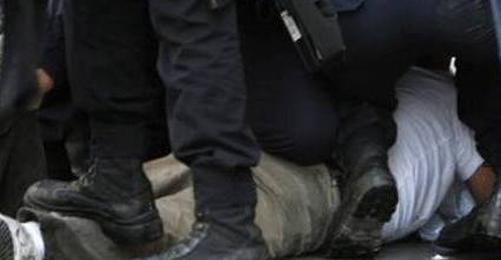These are what 10-year-old Nesim Oner would like to do. Oner lost his left eye, left arm and three fingers on his right hand when a land mine he found in an empty field in Diyarbakir accidentally exploded.
He spoke to the "Initiative for a Turkey Without Mines" for a documentary.
"I crumble bread for him, and leave the crumbles next to him. He holds them between this hand and two fingers..." says his mother Hazime.
Muteber Ogreten, a spokesperson for the Initiative complains that the media does not pay enough attention to the land mine problem in Turkey. This was is the main reason they prepared a documentary, Ogreten said.
"We thought it would be an effective way to reflect the importance of the subject if the victims of mine explosions, and especially children tell what they have been through."
According to the Ottawa agreement Turkey ratified in 2003, the country has to destroy all land mines in store by the year 2008, and clean up all land mines planted in fields by 2014.
The agreement, signed by 139 countries, also bans countries from planting new mines. 107 countries, which have not signed the agreement, announced they would implement its rules.
According to the agreement, there should be necessary warnings and monitoring in fields planted with mines. However, in Turkey, there even are governors' decisions, which accuse victims of mine explosions with "harming state property."
According to the date of the Initiative for a Turkey without Mines, there were 19 land mine and other military equipment explosions in the first six months of 2004, killing 20 people and injuring 42.
Fourteen of those who died were soldiers, four were civilians, and four were children. Thirteen soldiers, 11 civilians and 19 children were injured.
No importance is placed on the victims of mine explosions in southeastern and eastern Anatolia, probably because they are far away from the "center."
The Initiative for a Turkey without Mines says that Turkey still has not started to clean up the land mines. It criticizes the state for not providing "the right to live" to the indirect victims of the clashes between Turkish troops and Kurdish rebels.
The "Diyarbakir Report," a documentary by the Initiative, includes interviews with the victims of mine explosions, families of the victims, and representatives of non-governmental organizations in central Diyarbakir province, and its districts and villages between June 13-17.
According to the Initiative, the state is responsible for the mines, and thus, should provide economic support and aid to the victims.
The data of the International Mine Watch Committee, show that at least 900,094 land mines are still planted in Turkey. 615,419 of these mines are planted along the border with Syria. 39,569 mines were planted around the police and paramilitary police stations and buildings in south and southeastern Anatolia between the years of 1989 and 1992.
The anti-personnel land mines and explosive military equipment cause the lives of, and injure civilians, and especially children, even many years after the clashes end. (OG/BB/EA/YE)







